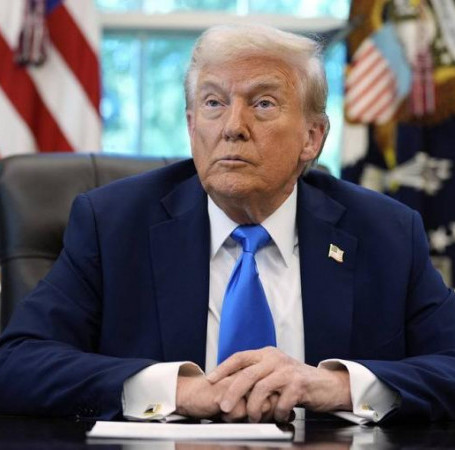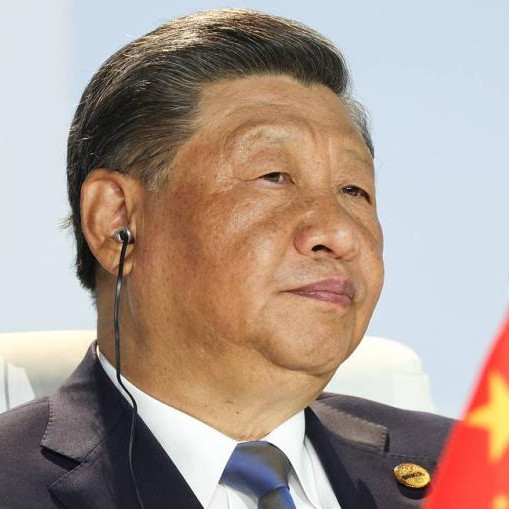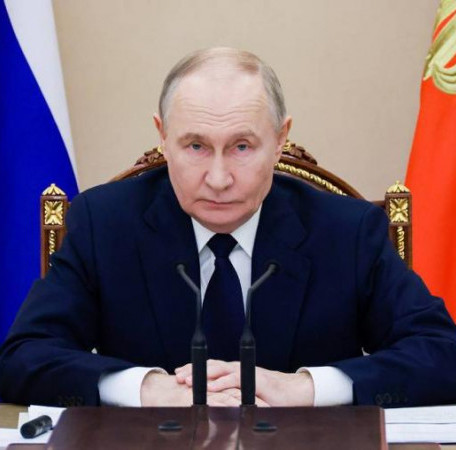Integration
Tbilisi Prevents Georgian Wine from Flowing into the Russian Mainstream
Georgian winemaking, experience shows that without the Russian market is doomed to stagnation
Georgiy Tetradze

The Russian Federal Service for Oversight of Consumer Protection and Welfare practically gave the go-ahead to the import of Georgian products. The question is, first of all, about the wines and mineral waters.
Head of the agency, Gennady Onishchenko, said recently that the Sarajishvili Company seems to soon return to the Russian market and later on we can expect others too. Certainly, said the chief sanitary doctor of Russia, if the Georgian company fulfil and follow all the norms stipulated by Russian law as well as the norms and forms adopted by the civilized world.
Representatives of the Optima firm, a partner of the Georgian Sarajishvili Company, confirmed to journalists that negotiations are under way and specific steps to restore cooperation are being taken. At the same time the reservation was made that it is too early to say of Georgian brandy (Sarajishvili’s main specialization) volume of delivery; over the years, the niche market previously occupied by the Georgian products, was not long empty, and now there needs to be a new advertising campaign to promote drinks, attract customers who, hopefully, have not quite forgotten what a quality Georgian brandy is (in the old days - cognac).
Thus, in Russia, as you might guess from the word of Mr. Onishchenko, something is being done to return Sarajishvili’s products to the shelves as well as those of other companies. It is worth remembering that the chief sanitary doctor of Russia has earlier repeatedly expressed regret at the absence of the same Borjomi water.
Against this background, the statement of Sarajishvili Company representatives delivered in Tbilisi saying that they do not know anything about the possible restoration of exports to Russia puzzled everybody. Journalists made a “cross-examination”, but have not made clear the situation - from the confused and vague responses it only could be assumed that exports would ever be restored.
The press conference of Vera Kobalia, Minister of Economy did not dispel the mist either. “I do not know anything about it,” she said in reply to the question on renewal of the Georgian-Russian trade.
Ms. Kobalia (Minister of Economy!) had time to train the Georgian media to her ignorance, though. The young woman minister, who had attracted the President Mikhail Saakashvili’s attention during his visit to Canada, where she with her household kept a small bakery, rarely satisfies the curiosity of journalists (true, unless the question is about some global tourism projects, which theoretically not for the first year promise an unprecedented enrichment to Georgia). She is either really in the dark, or prefers not to dilate on principle - in order that something would not happen.
It turned out that a possible clue is to be found in the statement of the leader of the Christian Democrats opposition parliamentary faction, Giorgi Targamadze. During his critical speech about one more government project, he recommended the authorities not to deal with chimeras in form of some 50 or 100-day programs, whose results are “never seen”, but just not to prevent the Georgian winemakers from negotiating with Russian structures on resumption of their products exports.
A friend of mine, a winemaking company director on condition of anonymity confirmed what Targamadze said at a session of Parliament. “Until recently, the authorities have not pay attention to our efforts to improve relations with Moscow – they must have been aware that it was unrealistic. Indeed, there was no result - in response we received a list of such conditions and requirements that it was clear: Russia does not want to work with us,” said the businessman.
According to him, the situation began to gradually change when Georgian opposition politicians began to hold negotiations with Gennady Onishchenko. But then President Mikhail Saakashvili delivered a statement that “for Russia there is no wine.” “After that, we were specifically warned that exports to Moscow are not encouraged. I do not know who would risk, even if Russia opens doors for us without any conditions - in no time everything will be lost. It is done very quickly here, if somebody is not loyal to the authorities. As the phrase goes, the case is not pants with piping, it is made in a minute,” said the businessman.
Alongside with that, Georgian wine-making, as the recent years experience has shown, without Russian market is doomed to stagnation. You can win international prizes in any quantity, become winner of festivals (which, incidentally, happens regularly and, of course, brings moral satisfaction), but the financial potential of the wine business is hardly realized. The large-scale campaign, launched by the authorities after the Russian embargo compensated financial losses to a small extent.
Hopes for the domestic market have not been realized either, as predicted by experts. Despite the apparent surplus production and domestic over demand, winemaking companies are forced to keep prices high. For example, a bottle of good white wine (and it is now difficult to find a bad wine in Georgia) costs a minimum of $4, that of red wine – by half or two times more expensive. Lower prices are direct losses. Such is the impasse: it is not advantageous to sell cheaper, while at current prices the products are poorly sold out. In Georgia, the store-bought wine has been always hard to be sold, because many people have their own small vineyards and who does not, they buy grapes and tramp grapes to make wine for themselves.
“In a word, it is very difficult without a big market. And in fact the only real market is the Russian one,” the winemaker continued the conversation.
As he predicted, the situation can begin to develop by the following scenario. Georgian winemakers or their Russian counterparts will have to find or create an intermediary company in the country with which the Georgian authorities are on good terms, and thus to perform double export. Naturally, this will affect the final cost of products in Russian shops.
However, it seems to be the only solution in the current political situation. “We’ll have to create this type of schemes. But all this only if the Russian structures really give the go-ahead to resume imports of our products,” said my interlocutor. And concluded: “True, it is unsafe too, and if the authorities really want to, of course, they will be able to decipher and to destroy this code, regardless of the tax revenues and other budgetary recharge.”
Head of the agency, Gennady Onishchenko, said recently that the Sarajishvili Company seems to soon return to the Russian market and later on we can expect others too. Certainly, said the chief sanitary doctor of Russia, if the Georgian company fulfil and follow all the norms stipulated by Russian law as well as the norms and forms adopted by the civilized world.
Representatives of the Optima firm, a partner of the Georgian Sarajishvili Company, confirmed to journalists that negotiations are under way and specific steps to restore cooperation are being taken. At the same time the reservation was made that it is too early to say of Georgian brandy (Sarajishvili’s main specialization) volume of delivery; over the years, the niche market previously occupied by the Georgian products, was not long empty, and now there needs to be a new advertising campaign to promote drinks, attract customers who, hopefully, have not quite forgotten what a quality Georgian brandy is (in the old days - cognac).
Thus, in Russia, as you might guess from the word of Mr. Onishchenko, something is being done to return Sarajishvili’s products to the shelves as well as those of other companies. It is worth remembering that the chief sanitary doctor of Russia has earlier repeatedly expressed regret at the absence of the same Borjomi water.
Against this background, the statement of Sarajishvili Company representatives delivered in Tbilisi saying that they do not know anything about the possible restoration of exports to Russia puzzled everybody. Journalists made a “cross-examination”, but have not made clear the situation - from the confused and vague responses it only could be assumed that exports would ever be restored.
The press conference of Vera Kobalia, Minister of Economy did not dispel the mist either. “I do not know anything about it,” she said in reply to the question on renewal of the Georgian-Russian trade.
Ms. Kobalia (Minister of Economy!) had time to train the Georgian media to her ignorance, though. The young woman minister, who had attracted the President Mikhail Saakashvili’s attention during his visit to Canada, where she with her household kept a small bakery, rarely satisfies the curiosity of journalists (true, unless the question is about some global tourism projects, which theoretically not for the first year promise an unprecedented enrichment to Georgia). She is either really in the dark, or prefers not to dilate on principle - in order that something would not happen.
It turned out that a possible clue is to be found in the statement of the leader of the Christian Democrats opposition parliamentary faction, Giorgi Targamadze. During his critical speech about one more government project, he recommended the authorities not to deal with chimeras in form of some 50 or 100-day programs, whose results are “never seen”, but just not to prevent the Georgian winemakers from negotiating with Russian structures on resumption of their products exports.
A friend of mine, a winemaking company director on condition of anonymity confirmed what Targamadze said at a session of Parliament. “Until recently, the authorities have not pay attention to our efforts to improve relations with Moscow – they must have been aware that it was unrealistic. Indeed, there was no result - in response we received a list of such conditions and requirements that it was clear: Russia does not want to work with us,” said the businessman.
According to him, the situation began to gradually change when Georgian opposition politicians began to hold negotiations with Gennady Onishchenko. But then President Mikhail Saakashvili delivered a statement that “for Russia there is no wine.” “After that, we were specifically warned that exports to Moscow are not encouraged. I do not know who would risk, even if Russia opens doors for us without any conditions - in no time everything will be lost. It is done very quickly here, if somebody is not loyal to the authorities. As the phrase goes, the case is not pants with piping, it is made in a minute,” said the businessman.
Alongside with that, Georgian wine-making, as the recent years experience has shown, without Russian market is doomed to stagnation. You can win international prizes in any quantity, become winner of festivals (which, incidentally, happens regularly and, of course, brings moral satisfaction), but the financial potential of the wine business is hardly realized. The large-scale campaign, launched by the authorities after the Russian embargo compensated financial losses to a small extent.
Hopes for the domestic market have not been realized either, as predicted by experts. Despite the apparent surplus production and domestic over demand, winemaking companies are forced to keep prices high. For example, a bottle of good white wine (and it is now difficult to find a bad wine in Georgia) costs a minimum of $4, that of red wine – by half or two times more expensive. Lower prices are direct losses. Such is the impasse: it is not advantageous to sell cheaper, while at current prices the products are poorly sold out. In Georgia, the store-bought wine has been always hard to be sold, because many people have their own small vineyards and who does not, they buy grapes and tramp grapes to make wine for themselves.
“In a word, it is very difficult without a big market. And in fact the only real market is the Russian one,” the winemaker continued the conversation.
As he predicted, the situation can begin to develop by the following scenario. Georgian winemakers or their Russian counterparts will have to find or create an intermediary company in the country with which the Georgian authorities are on good terms, and thus to perform double export. Naturally, this will affect the final cost of products in Russian shops.
However, it seems to be the only solution in the current political situation. “We’ll have to create this type of schemes. But all this only if the Russian structures really give the go-ahead to resume imports of our products,” said my interlocutor. And concluded: “True, it is unsafe too, and if the authorities really want to, of course, they will be able to decipher and to destroy this code, regardless of the tax revenues and other budgetary recharge.”


